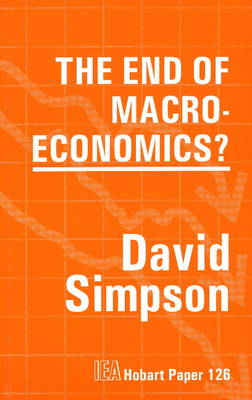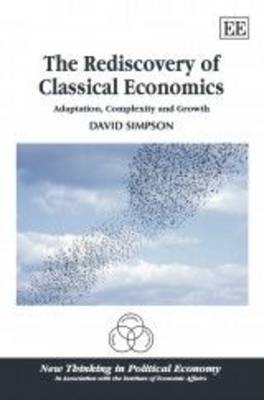Hobart Papers
2 primary works
Book 126
CONTENTS: Introduction; What is Macro-Economics?; The Failure of Macro-Economic Policy; The failure of Macro-Economic Theory; The Classical Alternative; Implications of the Alternative Approach; Summary & Conclusions.
Book 131
This book puts human beings back at the heart of the economic process. It shows how this classical, human-centred tradition, stretching from Adam Smith onward, gives us a much better understanding of economic events - and what to do about them - than the mechanistic, mathematical models of too many economists and planners today.' - Eamonn Butler, The Adam Smith Institute, UK 'David Simpson writes about key economic issues with admirable lucidity. He draws deeply on experience as well as on his knowledge of economic theory.' - Asa Briggs David Simpson skilfully argues that a market economy can be best understood as a human complex system, a perspective that represents a continuation of the classical tradition in economic thought. In the classical tradition, growth rather than allocative efficiency is the principal object of enquiry, economic phenomena are recognised to be elements of processes rather than structures, and change is evolutionary. The book shows the common principles that connect the early classical school, the Austrian school and complexity theory in a single line of thought.
It goes on to show how these principles can be applied to explain the characteristic features of a market economy - namely incessant change, growth, the business cycle and the market process itself - and argues that static equilibrium theory, whether neoclassical or neo-Keynesian, cannot satisfactorily account for these phenomena.
It goes on to show how these principles can be applied to explain the characteristic features of a market economy - namely incessant change, growth, the business cycle and the market process itself - and argues that static equilibrium theory, whether neoclassical or neo-Keynesian, cannot satisfactorily account for these phenomena.

